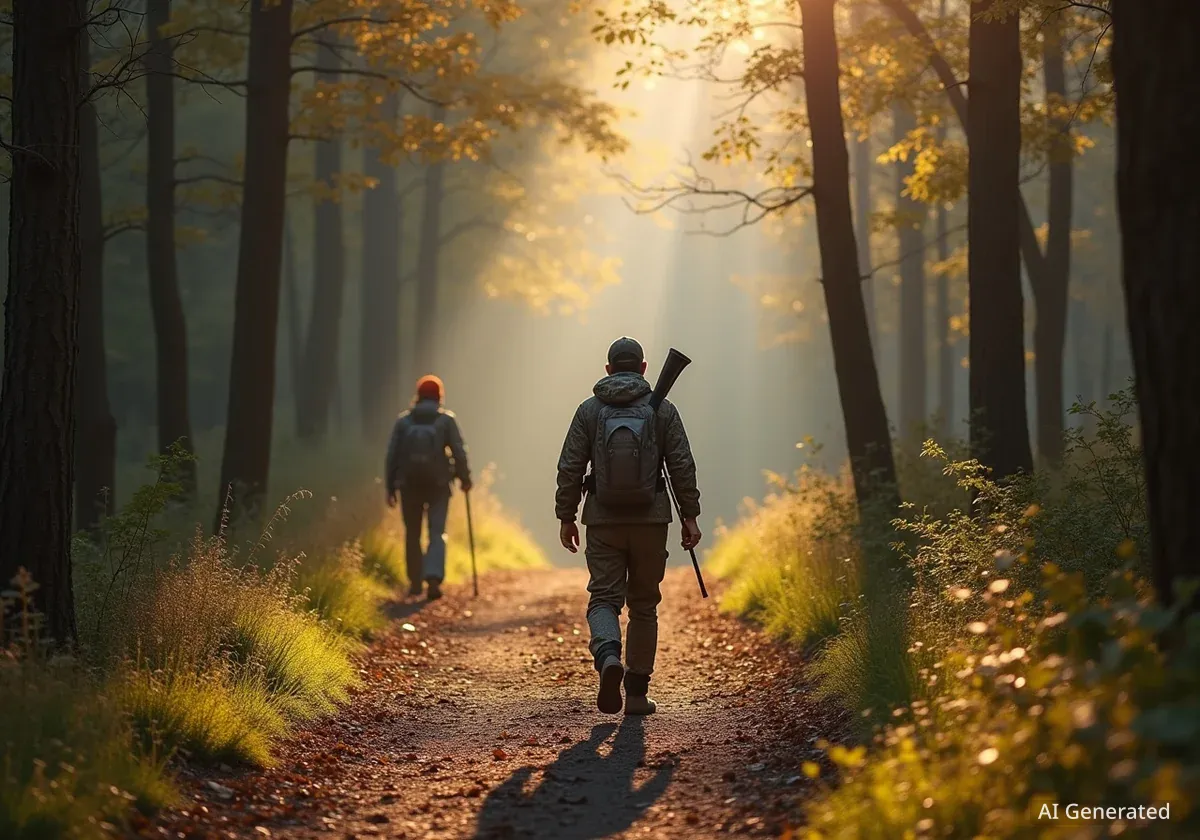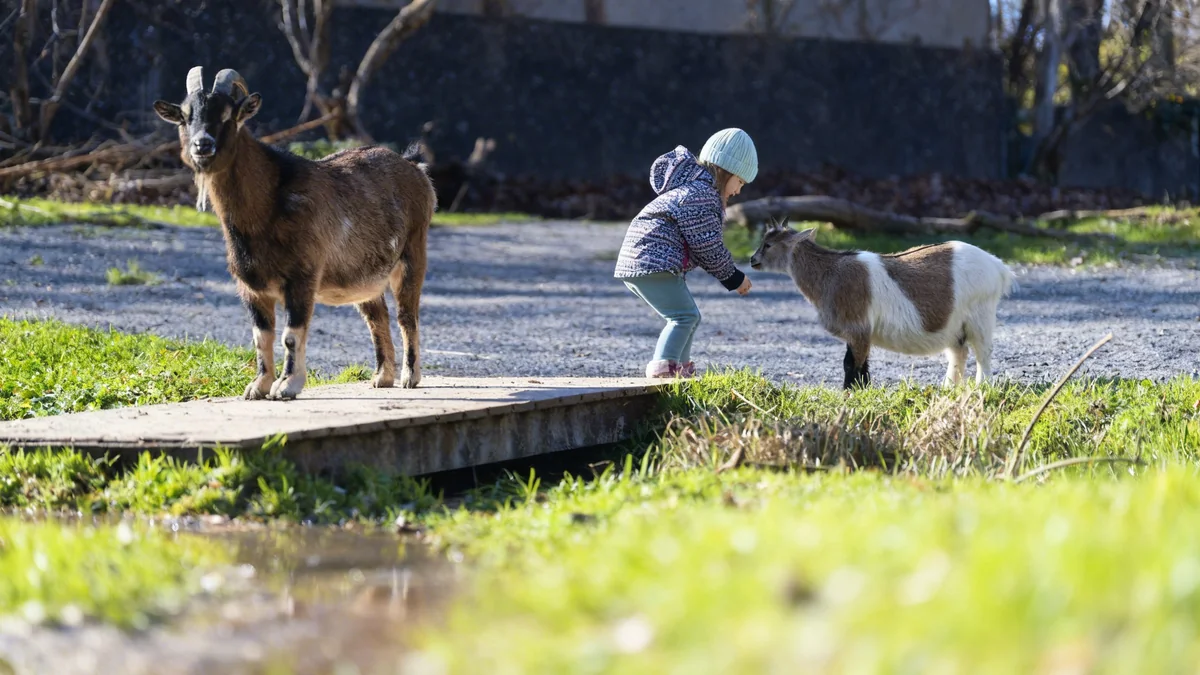The Canton of Bern's hunting season, running from October 1 to November 15, brings hunters into shared forest spaces with hikers, joggers, and mushroom gatherers. This overlap can lead to public concern. The Bernese Hunters' Association (BEJV) is promoting mutual respect and clear communication to ensure safety and understanding among all forest users.
Key Takeaways
- Hunting season for roe deer in Bern runs from October 1 to November 15, primarily on Mondays, Wednesdays, and Saturdays.
- The Bernese Hunters' Association emphasizes early communication and mutual respect between hunters and other forest users.
- No safety restrictions exist for the public during hunting season, but hunters are urged to engage with curious individuals.
- There have been no reported hunting accidents involving non-hunters in recent years in Bern.
- Wearing bright clothing when off marked paths is a suggestion for visibility, not a safety requirement.
Hunting Season in Bern: Coexistence in the Woods
The autumn months in Bern transform local forests into active zones for various activities. From October 1 to November 15, roe deer hunting is permitted. This means that hunters, often carrying firearms, share the same natural environment with people enjoying recreational activities. These activities include jogging, mushroom picking, dog walking, and horseback riding. This shared space can sometimes create discomfort for those unfamiliar with hunting practices.
Many forest visitors are surprised to learn that hunting is taking place. This lack of awareness can lead to questions about safety. The Bernese Hunters' Association aims to address these concerns through proactive measures and open dialogue.
Hunting Dates
Roe deer hunting in the Canton of Bern occurs on Mondays, Wednesdays, and Saturdays until November 15. Thursdays are reserved for hunting only if wild animals cause significant damage in specific areas.
Open Communication from Hunters
Nadine Buri-Frank, a hunter active in the Burgdorf area and across the canton, understands public reactions. She notes that some people look at her with skepticism when she walks through the forest with her rifle. However, Buri-Frank has consistently experienced positive interactions.
"I am often viewed skeptically by some people when I walk through the forest with my rifle," says Nadine Buri-Frank. "I always greet people actively to lower any initial hesitation. I often stop and leash my dogs."
She believes in open communication. When people ask questions, she gladly provides information. Her approach is guided by the principle: "You get back what you put into the forest." This means being friendly and approachable fosters positive responses from others.
Hunters' Association Focuses on Information
The Bernese Hunters' Association (BEJV) has adopted a strategy of early public information. This includes issuing media releases before the hunting season begins. Lorenz Hess, President of the BEJV, states that this method helps answer many questions in advance.
The BEJV's communication emphasizes the need for mutual respect among all forest users. Hess explains that early information makes interactions more relaxed. He reports that conflicts with non-hunters are rare. Most people are simply unaware it is hunting season and want to learn more.
Right to Access Forests
In Switzerland, the general public has a legal right to access forests. This right cannot be restricted during hunting season. Hunters must respect this principle while carrying out their activities.
Safety and Responsibility During Hunting
Lorenz Hess highlights the responsibility of hunters. He states that hunters should take time to answer questions about safety and training when they encounter other people. Talking to the public is crucial for building understanding.
"It is up to us to take a moment when we meet people, for example, to clarify questions about safety and training," Lorenz Hess says. "Talking to people is essential."
Hess confirms that there are no restrictions for other forest users during hunting season. He assures the public that they can continue their usual activities without risk. "They can still do exactly the same things as before, without being endangered in any way," he adds.
Recommendations for Forest Visitors
While safety is ensured, Hess offers a practical tip for mushroom gatherers who venture off marked paths. He suggests wearing a brightly colored jacket. This is not because of any risk of being shot. Instead, it helps hunters spot them from a distance. This allows hunters to know that they cannot hunt in that specific area. "You wouldn't have any hunting success there anyway," Hess notes.
Data from recent years supports the safety assurances. Hess reports no known accidents during hunting season where a jogger or hiker was shot. However, he acknowledges that the sound of a gunshot might be heard occasionally in the forest during the season. This is a normal part of hunting activities.
Neither the Cantonal Police nor the Department of Economic Affairs, Energy, and Environment of the Canton of Bern have records of such accidents in the region.
Public Perspective: No Issues Reported
Roland Riedener, a member of the All Blacks running group in Thun, also expresses no fear of accidental shootings. He states that his group has never encountered problems with hunters. Riedener notes that interactions are infrequent, as the group rarely meets hunters.
This low frequency of encounters may be partly due to regulations in Bern. Lorenz Hess explains that hunting parties in the canton are limited to a maximum of five people. This regulation helps manage the number of hunters in any given area.
Dog Owners' Responsibility
The BEJV asks dog owners to keep their pets close by. This rule applies both during and outside of hunting season, as per existing law.
Conclusion: Shared Responsibility for Safety
The autumn hunting season in Bern requires cooperation from all forest users. The Bernese Hunters' Association is actively working to inform the public and promote respectful interactions. By encouraging communication and adhering to safety guidelines, hunters and recreational users can continue to share the natural beauty of Bern's forests safely.
The focus remains on preventing misunderstandings and ensuring that everyone feels comfortable and secure while enjoying the outdoors. The commitment from the BEJV and individual hunters to engage with the public helps foster a positive environment for all.




